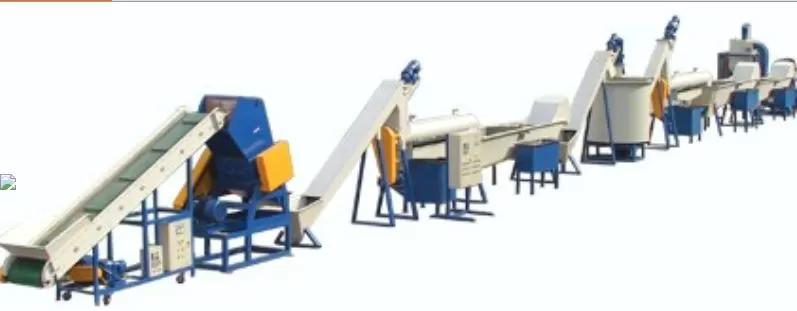Are you frustrated with the mounting plastic pollution problem? Ever wondered how countries like South Africa are dealing with it? As the CEO of Amige, I can assure you that South Africa is making remarkable strides in addressing this issue. The battle against plastic pollution is daunting, but innovative solutions are paving the way for a cleaner future.

South Africa’s plastic pollution control measures are not just necessary but revolutionary. By implementing cutting-edge strategies and technologies, we can transform this overwhelming challenge into a manageable task. So, what exactly are these solutions? Let’s dive in and explore.
Ready to uncover how South Africa is tackling plastic pollution? Here we go.
Why Does South Africa Need to Address Plastic Pollution?
First off, why is plastic pollution such a pressing issue in South Africa? The country’s growing population and industrial activities have led to an increase in plastic waste. Traditional waste management systems are struggling to keep up, resulting in severe environmental and health impacts.
Did you know that South Africa produces over 2 million tons of plastic waste annually? Addressing this issue is critical for protecting ecosystems and public health.
What Are the Key Strategies for Plastic Pollution Control in South Africa?
South Africa has adopted several innovative strategies to combat plastic pollution. These measures aim to reduce plastic waste generation, improve recycling rates, and promote sustainable practices.
1. Extended Producer Responsibility (EPR)
EPR is a policy approach where producers are given significant responsibility for the treatment or disposal of post-consumer products. South Africa has implemented EPR schemes to ensure that manufacturers take part in managing the plastic waste they produce.
2. Public Awareness Campaigns
Raising awareness about the impacts of plastic pollution is crucial. South Africa has launched various public campaigns to educate citizens on the importance of reducing, reusing, and recycling plastics. These campaigns are making a noticeable difference in consumer behavior.
3. Plastic Bag Levy
To reduce single-use plastic bags, South Africa introduced a plastic bag levy. This policy has significantly decreased the use of plastic bags, encouraging consumers to opt for reusable alternatives.
4. Innovation in Recycling Technologies
Innovation is at the heart of South Africa’s plastic pollution solutions. The country has invested in advanced recycling technologies to efficiently process plastic waste. These technologies include chemical recycling and high-efficiency sorting systems.
How Effective Are These Strategies?
The effectiveness of these strategies is evident in the tangible results observed in South Africa. Let’s take a closer look at the outcomes:
Reduction in Plastic Waste
The combined efforts of EPR, public awareness, and the plastic bag levy have led to a significant reduction in plastic waste generation. This has alleviated the pressure on landfill sites and minimized environmental pollution.
Increased Recycling Rates
With improved recycling infrastructure and technologies, South Africa has seen a substantial increase in recycling rates. More plastics are being diverted from landfills and reintroduced into the economy as valuable resources.
What Are the Challenges Faced?
Despite the progress, South Africa still faces several challenges in its fight against plastic pollution. Here are some of the key obstacles:
Inefficient Waste Collection Systems
In many regions, especially rural areas, waste collection systems are inefficient or nonexistent. This makes it difficult to manage plastic waste effectively and increases the risk of environmental contamination.
Public Compliance
While public awareness campaigns have made an impact, achieving full compliance is challenging. Changing deeply ingrained habits and behaviors takes time and continuous effort.
Economic Barriers
Implementing advanced recycling technologies and infrastructure requires substantial investment. Economic constraints can hinder the widespread adoption of these technologies, particularly in developing regions.
What Role Can Businesses Play?
Businesses play a crucial role in combating plastic pollution. By adopting sustainable practices and supporting innovative solutions, companies can make a significant difference. Here’s how:
Sustainable Packaging
Businesses can reduce plastic waste by opting for sustainable packaging solutions. This includes using recyclable materials, minimizing packaging, and exploring biodegradable options.
Corporate Social Responsibility (CSR) Programs
Implementing CSR programs focused on environmental sustainability can enhance a company’s reputation and contribute to plastic pollution control. These programs can include initiatives like community clean-ups, funding recycling projects, and promoting eco-friendly products.
Partnerships and Collaborations
Collaboration is key to addressing plastic pollution. Businesses can partner with governments, NGOs, and other organizations to develop and implement effective waste management strategies.
How Can Individuals Contribute?
Individual actions are equally important in the fight against plastic pollution. Here are some ways you can make a difference:
Reduce Plastic Consumption
Reducing the amount of plastic you use is the first step. Opt for products with minimal or no plastic packaging and avoid single-use plastics whenever possible.
Participate in Recycling Programs
Make sure to recycle all eligible plastic items and encourage others to do the same. Proper sorting and disposal can significantly enhance recycling efficiency.
Support Eco-Friendly Brands
Support brands that prioritize sustainability and use eco-friendly materials. Your purchasing decisions can drive demand for more sustainable products and practices.
Conclusion
South Africa’s approach to tackling plastic pollution is comprehensive and innovative. By integrating policies like EPR, public awareness campaigns, and investing in advanced recycling technologies, the country is making significant strides. While challenges remain, the combined efforts of the government, businesses, and individuals are paving the way for a cleaner and more sustainable future.
That’s it! If you have any questions or need more information, feel free to reach out. Let’s continue working together towards a greener planet.
